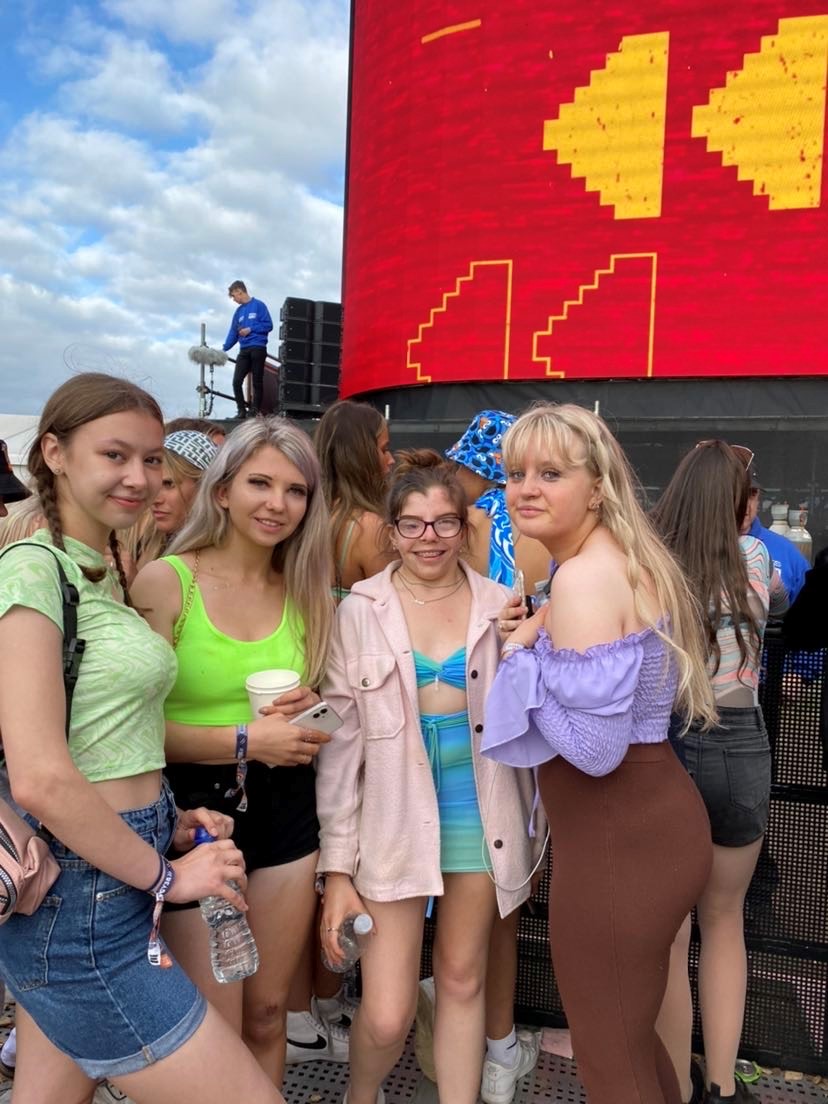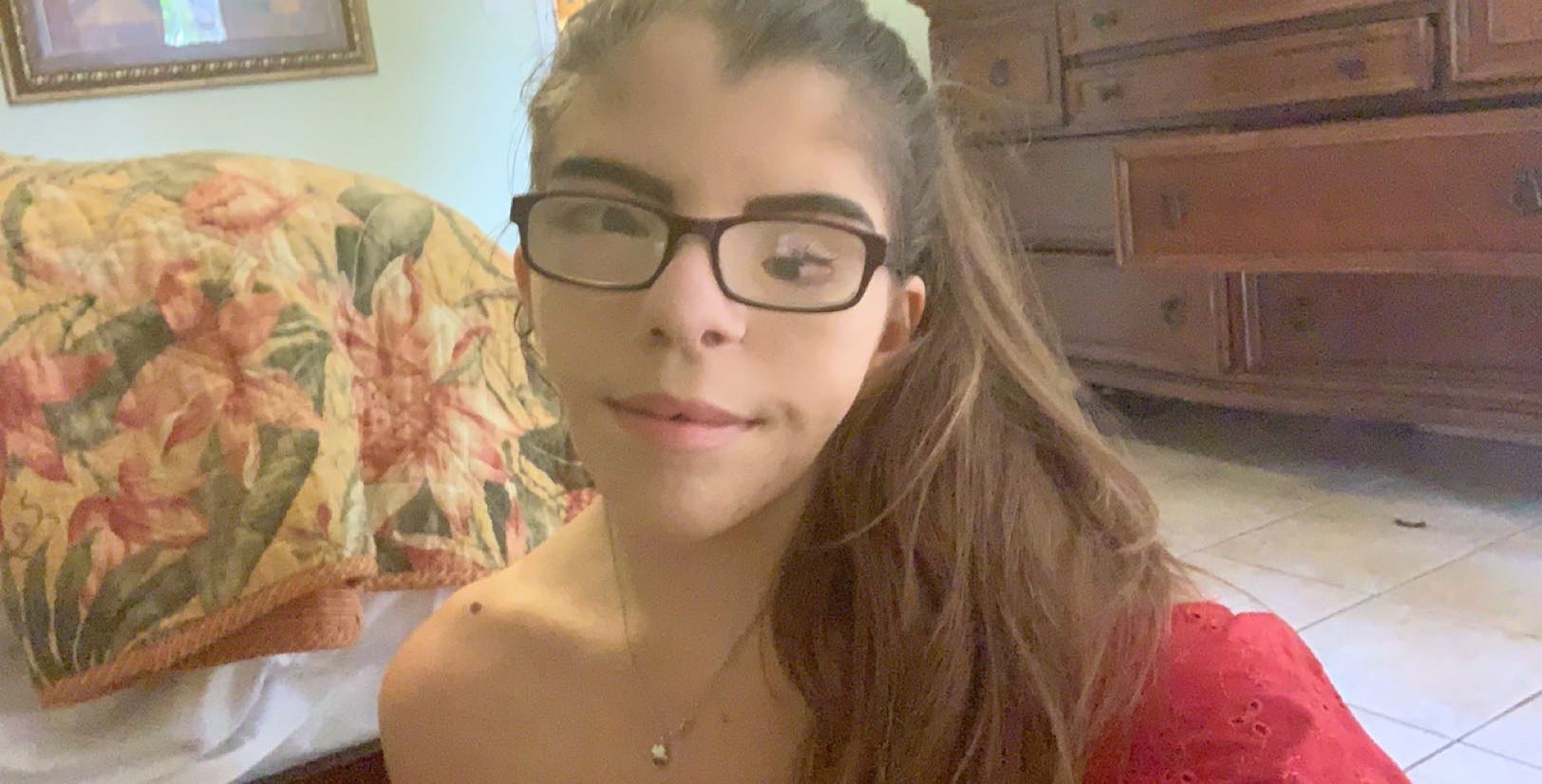I’m Hannah. I’m 20 and I was born with a condition called Goldenhar syndrome. As a result, I have a visible facial difference as well as scoliosis (curve of the spine) which I was diagnosed with at two years old.
I had quite a lot of different surgeries when I was very young, including several craniofacial operations. I have had titanium rods in my back since I was three, before finally having my spine fused and permanent rods in place when I was 14. Because of this, I have scarring on my back, and a ‘bump’ where the rod is. My body is also a lot shorter.
A lot of my early years were spent in and out of hospital. This was hard at times. I would miss a lot of school work and have to catch up – which was stressful. As I got to the age where I understood the risks involved, I would also feel anxious before big operations. And recovery from them was long and painful.
Living with a visible difference can be scary. You never know what people are thinking or whether someone will say something. I’ve grown up with people staring at me constantly and I’ve also had quite a few people make fun of the way I look.
Living with a visible difference can be scary. You never know what people are thinking or whether someone will say something.
When I was younger, (but old enough to notice) I didn’t know how to deal with people staring at all. It got to a point where I was so anxious about going out in public that I would try and avoid it. Even if I wanted to – because I knew that someone would definitely stare. I would always feel on edge and paranoid.
When I did go out, I hid behind my friends and family so that no one saw my face. Or I’d pretend to scratch my forehead – covering my face with my hand to hide the side I was self-conscious about.
I still hate it when people stare, but something that’s helped me deal with it is to think that people are being curious, and that no one’s opinion of me matters but my own. I smile at them in the hope that they will stop and remind myself that it won’t mentally affect me if I don’t let it.

Another way I’ve coped is by pretending that I’m some big celebrity which is why people are interested in looking at me. I try to embrace the stares and seem like I don’t care.
Having this alter ego definitely makes me feel more confident and pretending I don’t care can work – changing these negative experiences into experiences that I can own with confidence and pride.
Living with a visible difference can sometimes feel lonely. Before discovering Changing Faces, I felt like no one around me understood my experiences. I didn’t know anyone else with a visible difference and I faced different struggles alone.
Fortunately, I’ve always had a brilliant network of friends who see me for me – and not what I look like.
And now, as a campaigner for Changing Faces, I’ve come across so many wonderful people with the same sort of experiences. It’s helped me feel less alone.
Now I’m older, I speak more about my feelings than I used to. My friends and family are supportive of me and if I show feelings of insecurity or loneliness they will try make me feel better and boost my confidence. Despite their affirmations, I still worry about how I might find a future partner and hope I meet someone who sees past the differences and can see me for who I am like my friends do.
Another way I’ve coped is by pretending that I’m some big celebrity which is why people are interested in looking at me.
Recently I’ve become more confident in the way I look. But I still have days where I lack confidence and self-esteem – especially when meeting new people or doing things like applying for jobs.
My big dream is to become a Play Specialist – to work in hospitals and help children the way I was helped. I’m currently doing a nursery apprenticeship, and get one step closer to this goal every day.
I’m so happy that I’m now part of a community that I wish I could’ve known about when I was younger. It really would have made all the difference. That’s why I hope that many others living with a visible difference can find out about Changing Faces – so they don’t have to feel like they are alone.
To anyone younger reading this, or to my younger self, I’d say: No one else’s opinion of you matters but your own. Those who can’t see past your visible difference are not worth your time or energy. If anything, these experiences will lead you to the right kind of people.
We’re sharing Hannah’s story ahead of Face Equality Week. This year’s theme is staring and we’ll be sharing lots of stories and experiences of how staring impacts people with visible differences.
